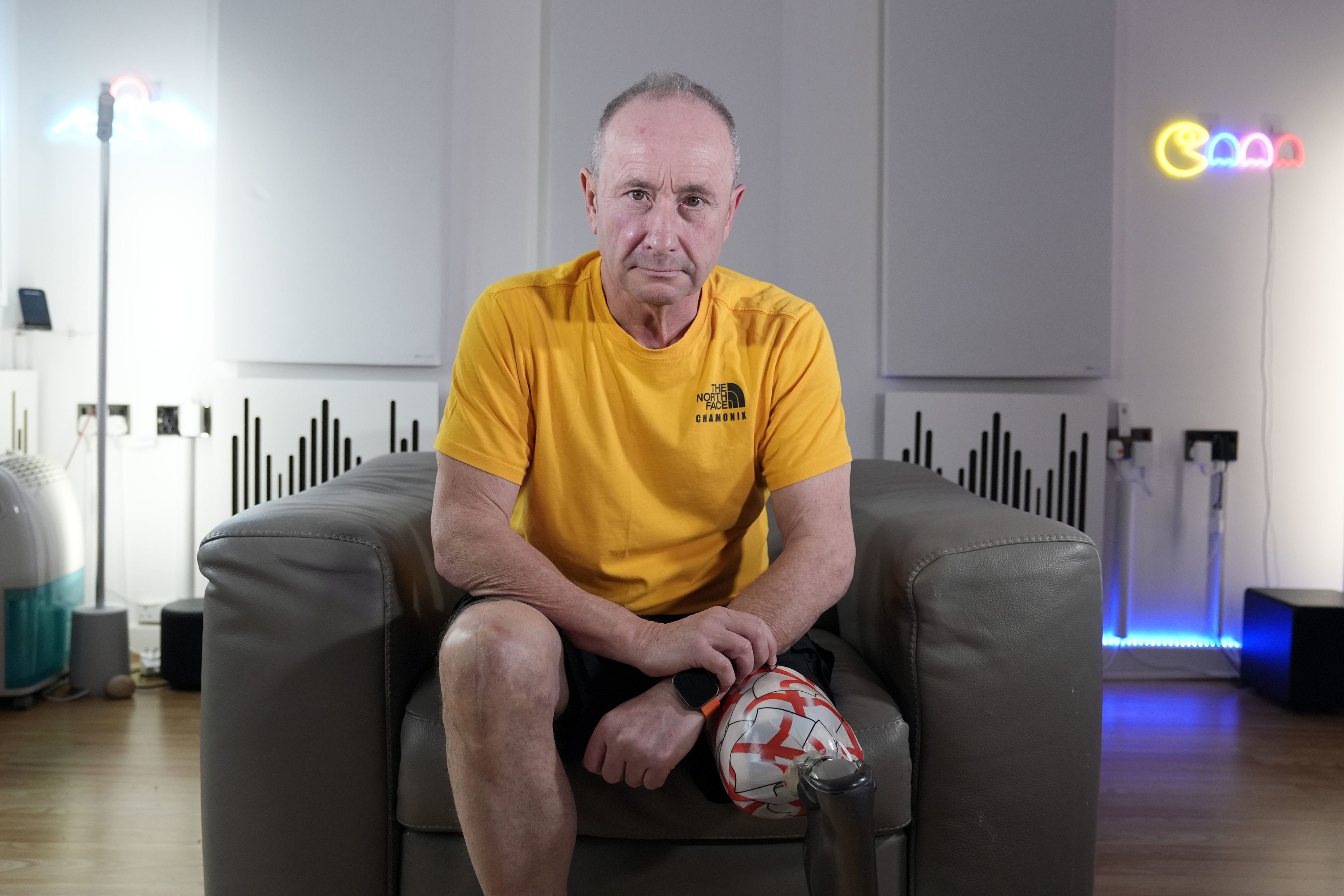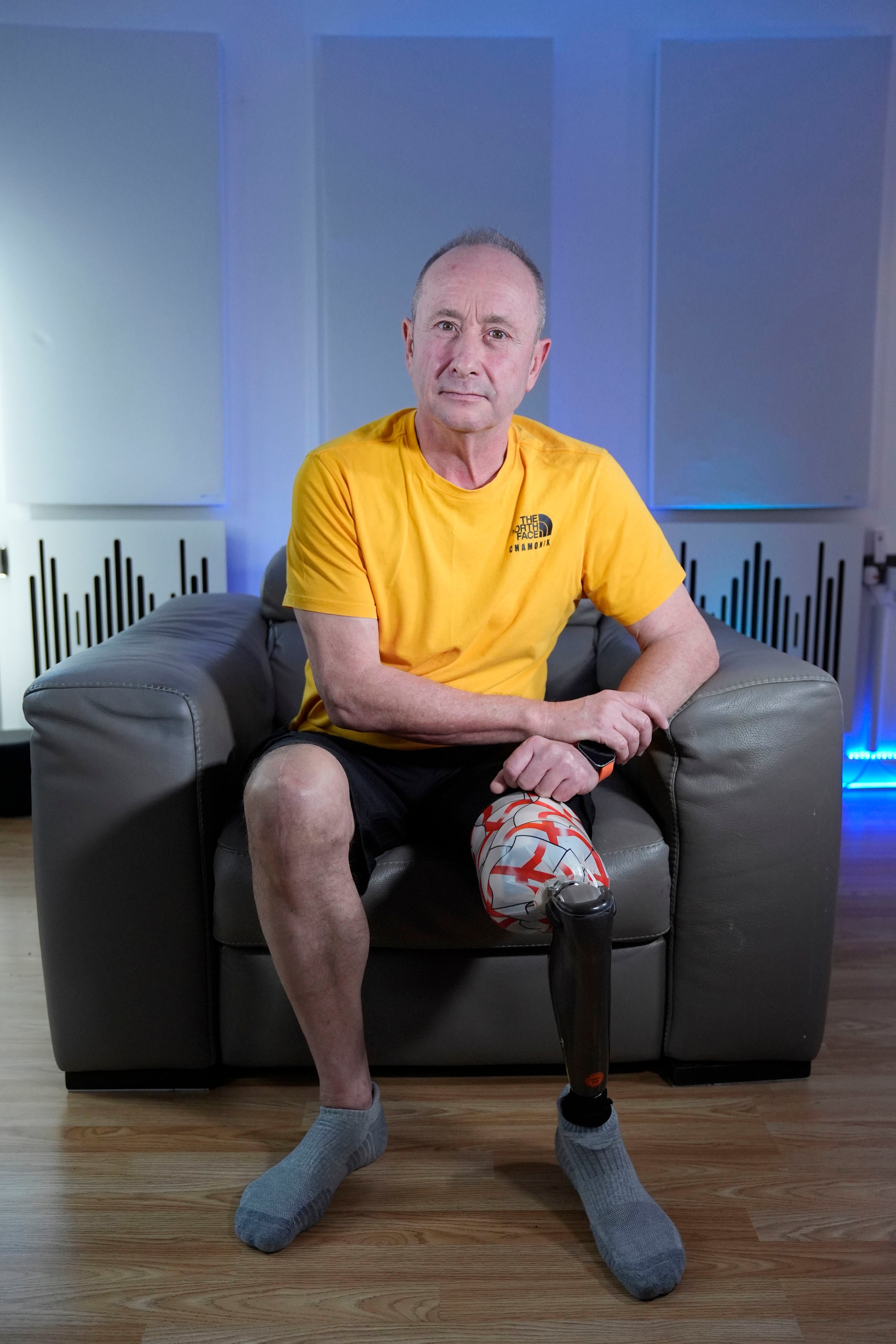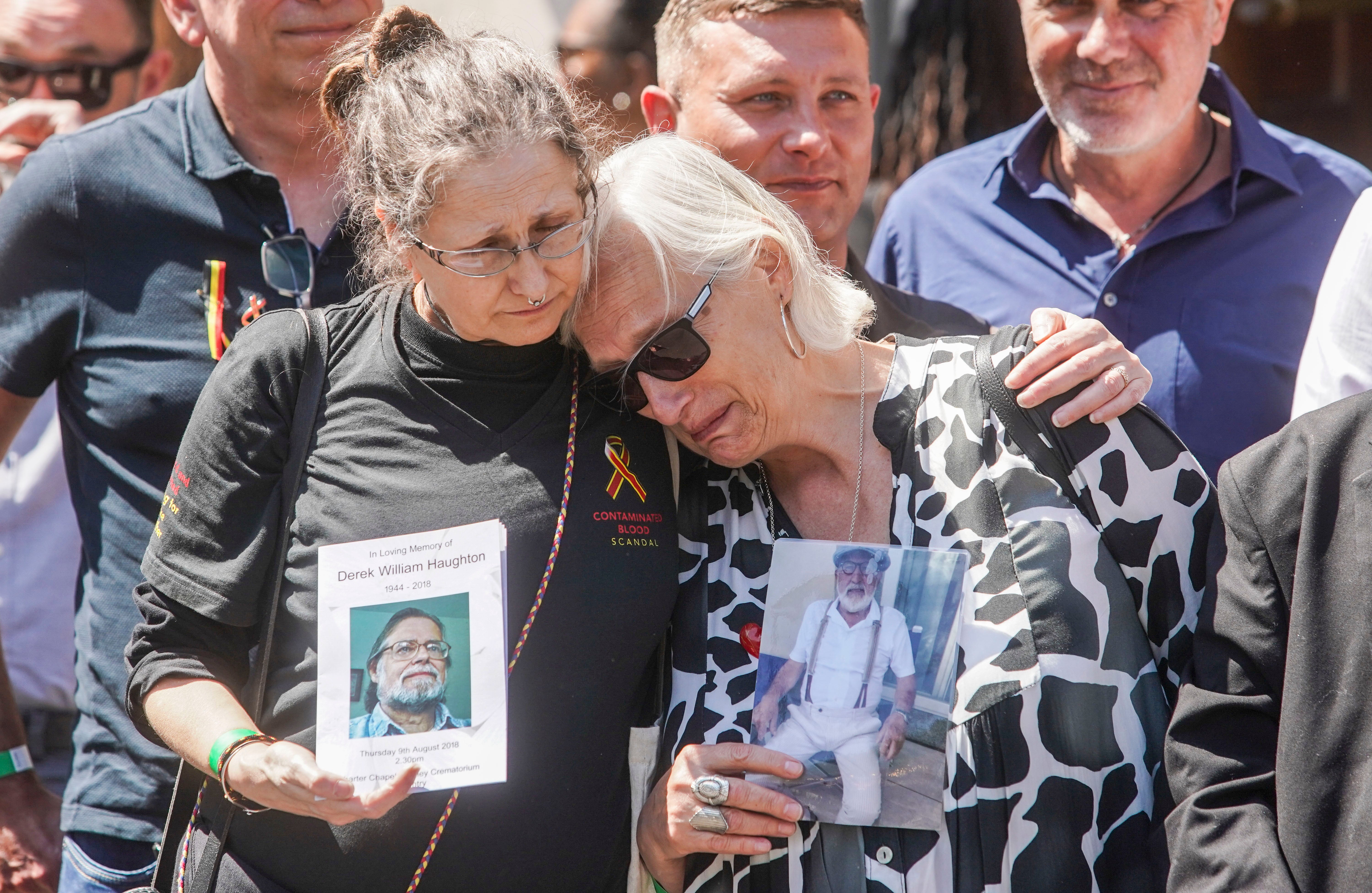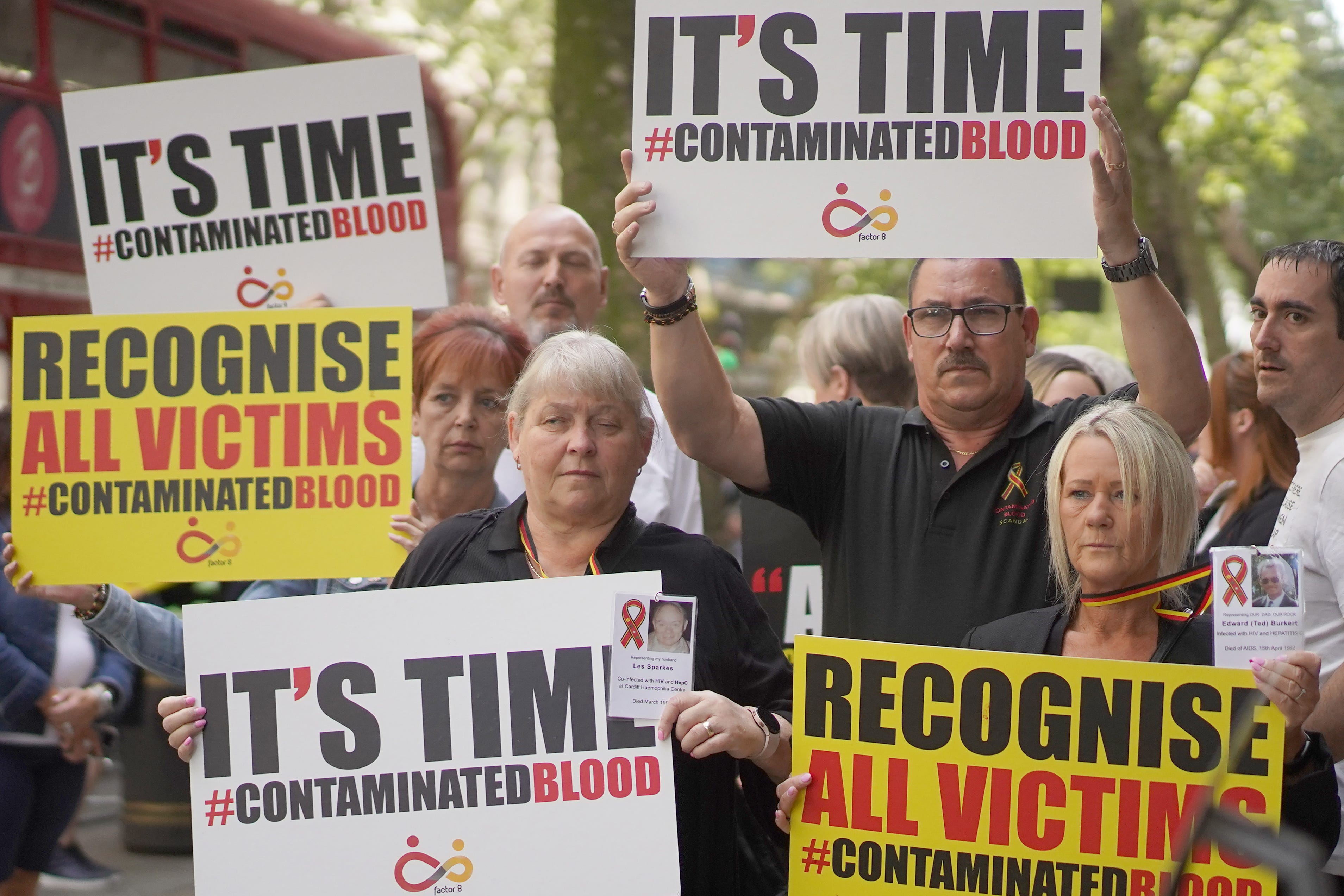‘I’m lucky to be alive’ says soldier who was given infected blood transfusion during leg amputation
Brendan West was infected with Hepatitis C in a blood transfusion at a British army hospital

Your support helps us to tell the story
From reproductive rights to climate change to Big Tech, The Independent is on the ground when the story is developing. Whether it's investigating the financials of Elon Musk's pro-Trump PAC or producing our latest documentary, 'The A Word', which shines a light on the American women fighting for reproductive rights, we know how important it is to parse out the facts from the messaging.
At such a critical moment in US history, we need reporters on the ground. Your donation allows us to keep sending journalists to speak to both sides of the story.
The Independent is trusted by Americans across the entire political spectrum. And unlike many other quality news outlets, we choose not to lock Americans out of our reporting and analysis with paywalls. We believe quality journalism should be available to everyone, paid for by those who can afford it.
Your support makes all the difference.Four decades after a transfusion that saved his life one soldier only found out he had been living with Hepatitis C eating away at his liver when he was turned away from donating blood.
Brendan West lost his leg in a horror hit-and-run collision while serving in the Army in Germany in 1979.
He was given a blood transfusion infected with Hepatitis C as doctors battled to save his life at a British military hospital.
Having served my country, and trying to have faith in the government, but all I see publicly is that they’re kicking me while I’m down
Mr West, now 63, only discovered he was infected with the virus when he was turned away from giving blood.
Subsequent tests have revealed that he has suffered severe liver damage as a result of the virus going undetected for so many years.
And he also has to be monitored for a life-threatening bleeding condition.
Mr West signed up to the Army in 1976 and was deployed to a British Military base in Germany as part of his work with the Royal Electrical Mechanical Engineers (REME).

While on duty outside of the barracks in 1979, Mr West was in a hit-and-run car accident and suffered multiple injuries.
His leg was “smashed to pieces”, all of his ribs were broken and he also suffered a fractured elbow.
Mr West said he was first treated at a Belgian hospital and then was sent to a British military hospital in Germany.
After the diagnosis it was discovered that I have pretty severe liver damage as well so I’m monitored every six months for liver cancer, which is a likely end for me
“I still had my leg at the time, it was smashed up,” he said.
“I was becoming more and more ill – I don’t know if it was gangrenous or not – but they had to amputate it and I was given a lot of blood.
“I assume the people who gave me blood were totally unaware of the risk (of infected blood) – I wouldn’t blame surgeons, or nurses, or whoever gave me the blood, but systematically there is obviously some blame there.”
Mr West described how he has needed further surgeries throughout his life, including two knee replacements and a hip replacement, adding: “What I find interesting is at no time was the Hep C discovered in 40 odd years, I find that really strange.”

He added: “I think the galling aspect for me is the way multiple governments, but particularly this government, have reacted (to the infected blood scandal).”
“Having served my country, and trying to have faith in the government, but all I see publicly is that they’re kicking me while I’m down.
“I’m lucky to be alive – there are so many dead: children; mothers; fathers – yet the government continue to delay by design.”
Mr West was diagnosed after he tried to give blood during the coronavirus pandemic.
I had numerous unexplained illnesses and episodes of exhaustion, which affected my working life in a big way
“During lockdown, I just wanted to do something good.”
“I went to give blood and I got a shock letter which came through the post and said ‘you have got Hepatitis C antibodies, we can’t take your blood’.
“Then I had to go and be tested for the virus and one of the specialist nurses said: ‘By the looks of the reading you have had this for more than 20 years.’
“We then backtracked through my Army medical records and it seems it was as a result of a blood transfusion from my injuries.”

Now retired, he recalls various episodes of unexplained illness during his working life that he has now realised were caused by Hepatitis C.
“I had numerous unexplained illnesses and episodes of exhaustion, which affected my working life in a big way,” he said.
“I worked hard and progressed while suffering bouts of illness and periods of exhaustion.
“At one point I was offered a promotion which would involve lots of international travel but I had to turn it down because I knew I wasn’t physically able to take on that role.”
It has dramatically affected me and the worst part about it is seemingly the government is totally uncaring about it
Mr West, who was born in Colne, Lancashire, needs aids to get around including prosthetics, crutches, walking sticks and a wheelchair.
“After the diagnosis, it was discovered that I have pretty severe liver damage as well so I’m monitored every six months for liver cancer, which is a likely end for me,” he said.
“I also have varices in the oesophagus… I’ve tried to be positive about things… but I’ve been told I might bleed to death when they burst.
“Psychologically it has affected me really badly.
“It has dramatically affected me and the worst part about it is seemingly the government is totally uncaring about it.”

Mr West – who now lives in Farnborough, Hampshire, with his cat Shorty – said that he “kept pretty quiet” about his diagnosis.
“It has taken a lot for me to speak to people about it, but now things are coming to a head because of the lack of government activity, I have decided to speak up,” he explained.
The chair of the damning inquiry into the infected blood scandal has called for compensation for the victims who have said they feel “betrayed” after politicians, doctors and civil servants were found guilty of a chilling cover-up.
Following the publication of a 2,527-page report on Monday, which laid bare a catalogue of failures by successive governments and the NHS, Sir Brian Langstaff told an audience at Central Hall Westminster: “Now is the time, finally, for national recognition of this disaster, for compensation.”
Tens of thousands of people were avoidably infected with HIV and Hepatitis in the worst treatment disaster in the history of the NHS, which led to the deaths of around 3,000 patients.
The report into the shameful scandal found the public was falsely reassured, children were treated unnecessarily, evidence was deliberately destroyed, and a significant number of people remain undiagnosed after receiving blood transfusions in the 1970s, 1980s and 1990s.
Join our commenting forum
Join thought-provoking conversations, follow other Independent readers and see their replies
0Comments